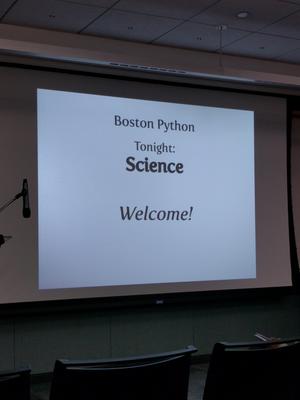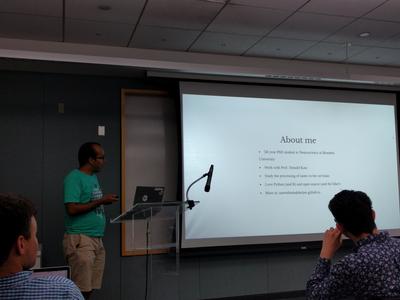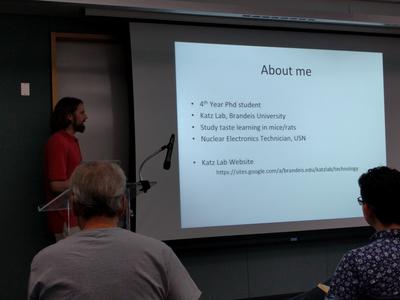Open source neuroscience at Boston Python



Last week, my labmate Joseph Wachutka and I got an opportunity to talk to the Boston Python User Group about our efforts in developing open-source tools in Python for electrophysiology. Boston Python is an amazing mix of Python-lovers, both seasoned and novice, who are always ready to listen, ask incisive questions and offer great feedback! It was enlightening (and very encouraging!) to talk to people interested in pushing open source - many of the questions from the audience were right on target and brought forth the very involved hardware and software challenges we have hacked around in the last few years.
Despite being a central technique in systems neuroscience, electrophysiology has been dominated by expensive proprietary technologies. Throughout our PhD work, Joe and I have tried to develop open source tools (mostly using the Raspberry Pi, Linux and Python) that help us run experiments and record, clean and analyze data. Apart from reducing the costs of performing complex electrophysiological and optogenetic studies by an order of magnitude, we hope that these efforts will make our science easier to share and reproduce (and shouldn't that be the ultimate goal for all scientists anyways?).
Here are the slides for my talk at Boston Python. Please do read about our Raspberry Pi based hardware setup and our recent Scipy Paper describing our HDF5-based data management and analysis pipeline.